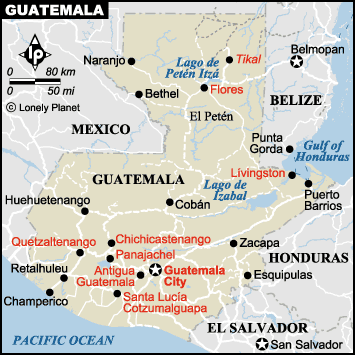Guatemala is a country of 14 million people that borders Mexico to the south. It is one of 7 Central American countries that form a natural land bridge between North and South America. Approximately 75% of all Guatemalans live below the poverty level* with the extremely poor being primarily refugees from countries further to the south. The more than 1
million stranded refugees fled their home countries in desperation for the promise of a better life in the United States. But as they arrive at the Guatemala-Mexico border they are reluctantly forced to hire paid smugglers for safe passage through the deadly Mexican desert and past the criminal element who prey on these nomadic families traveling with all they own. The smuggler fees are high and only those who are potential laborers such as fathers, husbands and older brothers are sent. If they make it through Mexico and find employment in the United States the money they earn goes first to the smugglers to pay off their debt. In the meantime their wives, mothers and children are left behind to fend for themselves. Many of their young daughters turn to prostitution to support the family with the average girl becoming pregnant by the age of 13. Drug and alcohol use is prevalent while other criminal activities flourish. Only 14% have access to doctors* while the percentage of chronically malnutritioned children is the highest in all of Latin America at a staggering 44%*. Life expectancy is only 65 years*, the lowest in Central America while the infant mortality rate is the highest in Central America at 45 per 1,000 births*.
Our goal is to meet the people of Guatemala at their needs. We hope to train them to be better workers, farmers and providers for their families. And ultimately we want to show them that their hope should be in Jesus Christ rather than the United States of America.
*Statistics from World Bank's World Development Report (WDR) for 2000/2001.
